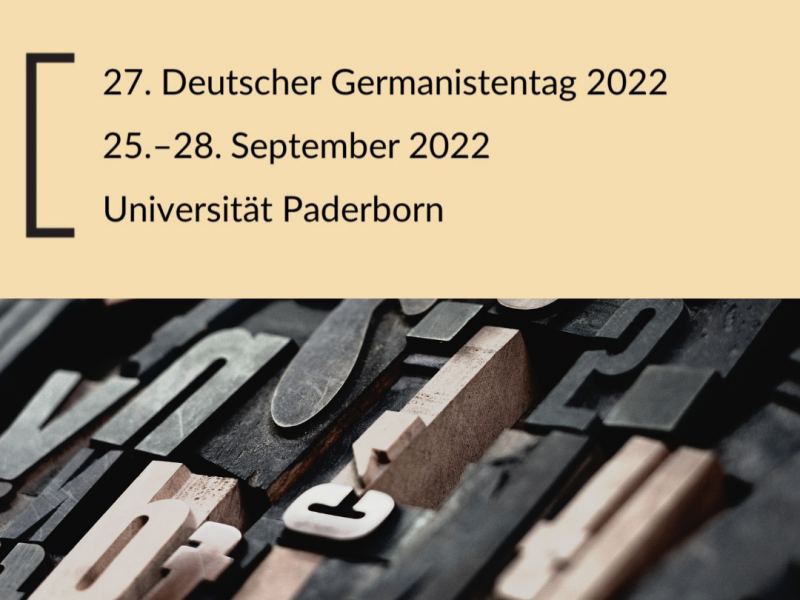27th German Conference of Germanists on the framework topic “Ambiguities” at the University of Paderborn
Panel: “Ambiguities in the Digital Humanities”

Date:
28.09.2022Place:
in H7.304 University of Paderborn
from 10.30 - 12.30
Categories:
ConferenceContact:
Dr. Claudia BambergFurther Information:
Link to the Event PageThe digital processing and analysis of Germanic text corpora - besides beautiful literature, this also includes resources such as dictionaries, literary histories, letters, and other first-person documents - is not only about the indexing of exact data (such as metadata for inventory or norm data), but also about questions of digital exploration and representation of ambiguities, which play a central role in literary as well as non-literary texts. The lectures aim to present three different aspects of ambiguity that are of importance in the Digital Humanities, using selected examples to demonstrate which digital methods can be used to explore and visualize those in different text genres and formats. The focus will be not only on the question of how ambiguity can be appropriately modeled and analyzed using digital methods, but also on the extent to which in many cases it is only through digital methods that these ambiguities can be discovered and made visible at all. Three aspects will thus be examined in more detail in the panel after an introduction and discussed in plenary: (a) digital lexicography and ambiguity, (b) ambiguity in digital editions using the example of “Arthur Schnitzler digital”, (c) digital literary studies and ambiguity using the example of the Trier project “Mining and Modeling Text”.
- Dr. Claudia Bamberg (Trier): Introduction
- Anne Klee (Trier): Ambiguity in dictionary networking. Using the example of the dialect dictionaries of the Trier dictionary network.
- Dr. Maria Hinzmann (Trier), Prof. Dr. Christof Schöch (Trier): Ambiguity and/or contradiction. Challenges in modeling statements of literary history
- Prof. Dr. Wolfgang Lukas (Wuppertal): Ambiguities in the genetic edition - problems and their (philological and technical) solution in 'Arthur Schnitzler digital'.
- Dr. Claudia Bamberg (Trier), Prof. Dr. Claudine Moulin (Trier): Moderation

